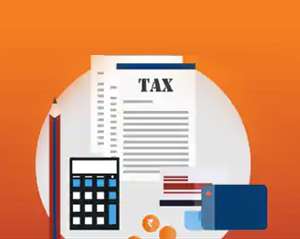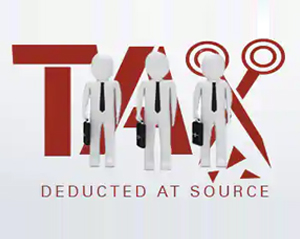1. Take advantages from the components of your salary
Some components in your salary structure have provisions of exemptions and deductions under the Income Tax Act. The perks, perquisites or tangible benefits that you are entitled to can be claimed up to some amount as deduction or is exempt in some cases. Few of them have been discussed below:
Major Components of Salary Slip
- Earnings: The first component of the salary is your earnings. It is important to know what this entails to optimise tax planning for salaried employees. Earnings can be categorised into the following:
- Basic salary: Your salary is made up of a fixed portion as agreed upon at the time of employment. This is known as the basic salary and is paid to you each month for as long as you are employed
- Bonus: Earnings can also include any bonuses that you may earn on festivals, for good performance metrics or if the company does well and decides to pass on some of its profits. These are one-time payments that may be paid annually or quarterly
- Allowances: Allowances are additional amounts paid to you on top of your basic salary. There are different types of allowances, as explained below:
- House rent allowance: If you are staying in rented accommodation and paying rent then you can claim exemption with respect to the house rent allowance (HRA) u/s 10(13A). Check how to calculate your HRA exemption here.
- Education allowance: Any allowance received for education up to Rs. 100 per month up to maximum of two children and hostel stay of employees’ children up to Rs. 300 per month up to maximum of two children from the employer can be claimed u/s 10(14).
- Leave Travel Allowance: Under this, two trips in a block of 4 years, i. Exemption limit where journey is performed by Air - Air fare of economy class by the shortest route or the amount spent, whichever is less ii. Exemption limit where journey is performed by Rail - Air-conditioned first class rail fare by the shortest route or the amount spent, whichever is less.
- Deductions: Deductions refer to the sum that is subtracted from your gross salary to arrive at the net salary. These can include contributions to savings and investment schemes like Provident Fund (PF), taxes like professional and income tax, deductions for insurance schemes and loan payments and others.
2. Investment in Deductible Options
- Section 80C states the most useful options to maximize take-home salary and lower down the tax pay-out. It offers as much as Rs. 150,000 in terms of tax benefit that can reduce tax outgo by Rs. 45,000 for assessees in 30% tax bracket, when calculated without surcharge and cess.
- Use ‘must-have’ options- Life Insurance and Employee Provident Fund. Expenses like life insurance premium paid and contribution to EPF, school fees can be claimed under 80C.
- You can claim principal repayment towards the home loan, by furnishing a proof of the same u/s 80C. You can also claim tax benefits u/s 24 towards the interest payment on your home loan up to Rs 2,00,000 in a financial year.
- You can claim a deduction of up to Rs. 25,000 in a financial year for medical insurance premium, provided the instalments is for you, your spouse, and your dependent children, as per section 80D.(Rs 30,000 if age of insured is 60 years or more)
Tip: Deductions under this section can be directly claimed in the tax return, and not necessarily claimed through your employer. Most importantly, you have to make these investments by 31st March, 2023 for tax benefits for FY 2022-23. More about Section 80C deductions here.
3. Tax Filing
Filing your ITR leads to the right outcome in your tax planning. In order to avoid last-minute hassles, file your returns well in advance. You can do so by e-filing your returns on the income tax department website or other ITR portals.
4. A more in-depth assessment of Section 80C
Understanding Section 80C of The Income Tax Act, 1961, is crucial for optimising your salary and tax planning. This section provides you with an opportunity to claim deduction up to ₹ 1.5 lakh per annum by investing in various specified life insurance instruments. Section 80C^ of The Income Tax Act, 1961 offers deduction on the premiums paid for a broad range of investments and tax planning options for salaried employees, such as Equity-Linked Saving Scheme (ELSS), National Savings Certificate (NSC), Public Provident Fund (PPF), life insurance premium and more.
Section 80C^ of The Income Tax Act, 1961 not only helps you save on income tax but also builds a diversified portfolio that aligns with your financial goals.
5. Avoid doing your tax planning at the last minute
One of the most beneficial tax planning tips for salaried employees is to steer clear of last-minute tax planning. Last-minute activities not only hamper investment research but also add unnecessary burdens and stress. Planning well in advance and saving from the beginning of the year helps you focus on both tax savings and your long-term financial objectives. Last-minute planning tends to be more about hastily saving on taxes rather than aligning with your financial goals. Regular and consistent investments throughout the year spread the financial load, offer you ample time for thorough research and help you take advantage of a longer investment horizon. Hasty choices made under pressure to save tax can often lead to errors and mistakes, potentially impacting your investment strategy's overall effectiveness.
6. Align your investments with your financial goals
Aligning your investments with your financial goals is crucial to ensure that you meet your objectives within your desired timeline. Investing with clear financial goals in mind provides a structured approach to wealth accumulation. It also promotes discipline and helps you prioritise your spending and saving habits.
What are the major Tax-saving Sections under the Income Tax Act?
Apart from Section 80C, there are many other sections of The Income Tax Act, 1961 that offer unique benefits. Below are some of these tax planning options for salaried employees:
- Section 80D : The premium paid for health insurance policies for yourself, your family and your parents are eligible for deductions under Section 80D with benefits up to ₹ 1 lakh subject to conditions prescribed under Income Tax Act, 1961
- Section 24(b): If you have a home loan, the interest paid on loan is eligible for tax benefits under Section 24(b) of the Income tax Act, 1961
- Section 80TTA: This section allows you to claim a tax deduction on the interest earned from your savings account of up to ₹ 10,000
- Section 80E:If you have taken an education loan for yourself, your spouse or children, the interest paid on the loan is eligible for deduction under Section 80E
- Section 80G:: Contributions made to eligible charitable institutions are eligible for tax deductions under Section 80G
What are the best Tax Saving Options for Salaried Employees in India?
Below are some tax planning options for salaried employees in India that you can use to enhance your savings:
- Employees’ Provident Fund (EPF): EPF is a mandatory savings scheme in India, where both employees and employers contribute a portion of the employee's salary towards retirement savings
- Public Provident Fund (PPF): PPF is a government-backed savings scheme that provides a fixed interest rate, tax savings and low-risk savings for long-term wealth accumulation
- Equity-Linked Saving Schemes (ELSS): ELSS are mutual funds that invest predominantly in equities. They offer the potential for higher returns with stock market-linked growth
- National Pension System (NPS): NPS is a voluntary, long-term retirement savings scheme that allows you to invest in a mix of equity and debt
- House Rent Allowance (HRA): HRA is an allowance provided by employers to salaried individuals to meet rental expenses
- Leave Travel Concession (LTC): LTC allows employees to claim tax exemptions on expenses incurred for domestic travel
- Retirement Benefits (Gratuity): Gratuity is paid to employees by employers upon retirement to provide financial support in the post-employment phase
COMP/DOC/Apr/2024/24/5800
What are the Best Tax Saving Investments available in India?
Fixed Deposit (FDs)
FDs are offered by banks, Non-Banking Financial Companies (NBFCs) and post offices. They are term deposits with a fixed tenure and rate of interest. FDs with a minimum five-year lock-in period qualify for deductions of up to ₹ 1.5 lakh under Section 80C^ of The Income Tax Act, 1961, making them ideal for salaried employees.
Health Insurance Plans
Health insurance is an excellent tool for tax planning for salaried employees. You can claim a deduction of up to ₹ 25,000 per year on health insurance premiums under Section 80D^ of The Income Tax Act. If you are aged 60 or above, this limit increases to ₹ 50,000. Additionally, if you pay premiums for your parents' health insurance, you can claim an extra deduction of ₹ 25,000 or ₹ 50,000 if they are senior citizens.
National Savings Certificate
NSC is a government-backed tax-saving scheme that can be opened at the post office. NSC qualifies for deductions under Section 80C^, allowing you to claim a deduction of up to ₹ 1.5 lakh per year on your taxable income.
Retirement Annuity Plans
A retirement annuity plan is another tax planning option for salaried employees. Apart from offering guaranteed income in retirement, it also provides tax benefits under The Income Tax Act, 1961. The premium can be claimed as a deduction of up to ₹ 1.5 lakh per year under Section 80C^.
Unit-Linked Insurance Plans (ULIPs)
ULIPs are one of the best tax planning investments for salaried employees in India. ULIPs offer life cover@ and investment benefits that help you grow wealth and secure your loved ones. In addition, the tax benefits under Section 80C^ allow you to claim deductions of up to ₹ 1.5 lakh per annum.
Endowment Plans
An endowment plan is a savings cum insurance plan that can help salaried employees cater to three goals – long-term savings, financial security for loved ones and tax savings of up to ₹ 1.5 lakh under Section 80C^.
Mutual funds
Mutual funds, specifically the Equity Linked Savings Scheme (ELSS), can be used by salaried employees to save tax. Investments made in ELSS mutual funds can be used as a deduction of up to ₹ 1.5 lakh under Section 80C^.
How to save income tax with Life Insurance Plans?
Step 1: Entry Advantage
All life insurance plans offer tax benefits on the premiums paid. You can start claiming up to ₹ 1.5 lakh in deductions per financial year as soon as you purchase a plan.
Step 2: Earnings Advantage
Some life insurance plans like ULIPsU and endowment plans offer a cash value in the form of savings and investments.
Step 3: Exclusive Switching Advantage
You can invest in different funds like equity, debt and hybrid with ULIPs. You can invest in any of these and switch between them to capitalise on market conditions. These switches can be done without triggering any tax liabilities, helping you earn better profits.
Step 4: Exit Advantage
The maturity and death benefits received from life insurance plans are tax-exempt under Section 10(10D)^, subject to prevailing tax laws. This helps maximise your payouts.
COMP/DOC/May/2025/215/0316
Points to remember in tax planning:
- Make sure your immediate and mid-term financial needs are covered as most of these investments have a minimum lock-in period of 5 years.
- It’s important to consider several investment opportunities before making a final decision. Ensure that your need of tax saving is not getting fulfilled at the cost of poor returns from that investment.
- Be fully aware of the objective of an investment, it’s gestation period and maturity terms and conditions.
- It’s not an year-end activity so avoid hasty decisions of investing in tax saving schemes that don’t give you benefits in future. Simple management and strategic decisions at the right time is all you need for smart tax planning!
People like you also read ...







